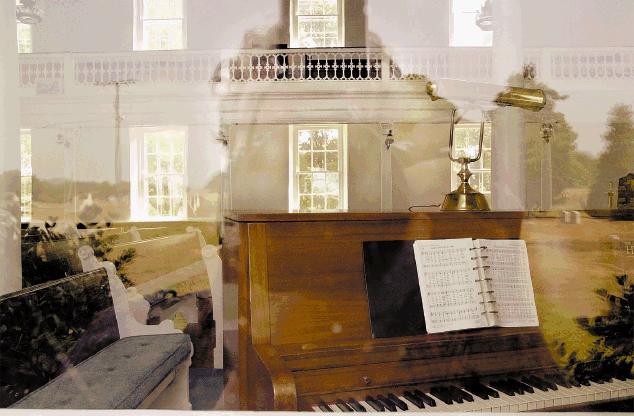
An agonizing decision
Long decline of White Marsh congregation
ends in 'agonizing' decision to close Northern Neck church.
By FRANK
DELANO
The Free Lance-Star
Date published: 9/2/2002
Second
in a series on the struggles of two small, rural churches.
Yesterday: The end of White Marsh
Today: An 'agonizing' decision
Tuesday: Hopes for revival
WHITE MARSH CHURCH remains nearly
the same as when it was built in 1848, except for a small addition with
bathrooms added in the 1950s.
Growth, remodeling and expansions
have altered many churches of similar age and style, but such growth
never came to White Marsh.
Suggestions of its decline go back to
1935, when a writer in the Richmond Christian Advocate said of White
Marsh, "A great many other churches have formed from this old church,
which has greatly weakened her."
In 1967, a bulletin for a
homecoming service explained that White Marsh had thrived up until World
War I, but the passing of the steamboat and the building of new roads
and bridges had opened up a "world tremendously changed" to this
once-isolated peninsula.
"From World War I, the decline started.
Our young people when they become of age leave and go elsewhere to
pursue a livelihood," the bulletin reported.
"At the present, we
have a membership of 82 with an average church attendance of 30. We hope
for a new day at White Marsh when more people will move into our area."
In 2001, White Marsh reported 54 members to the Virginia Conference.
Average Sunday attendance was 12.
There were no new members, no
transfers from other churches, no baptisms, no leaders, no children, no
Sunday School, no choir, and no members of the United Methodist Men,
Women or Youth Fellowship.
After that report was compiled, church
leaders studied membership rolls and deleted 29 people who had moved
away or hadn't been heard from in years.
Rudy L. Smith is
superintendent for the Virginia Conference's Rappahannock District,
which encompasses 62 churches on the Northern Neck and Middle Peninsula.
A minister for 33 years before becoming superintendent two years ago,
Smith explains his job as "pastor to the pastors."
"I supervise
them and make appointments. In that sense, I'm more like a boss than a
pastor. The church is more than a business, but we have to use good
managerial and business skills."
1 2 3 4 5 Next Page
Read more stories about Westmoreland
Date published: 9/2/2002

If you have questions, contributions, or problems with this site, email:
Coordinator - Rebecca Maloney
State Coordinator: Jeff Kemp
Asst. State Coordinators:
If you have questions or problems with this site, email the County Coordinator. Please to not ask for specfic research on your family. I am unable to do your personal research.